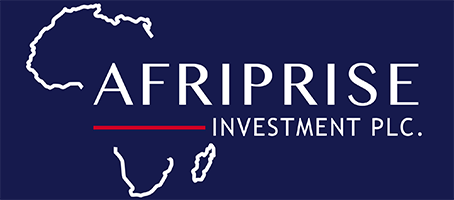OUR BUSINESS MODEL
TCCIA Investment PLC business model involves being an integrator of financial to invest in key sectors within our strategic focus. The Company has high sustainability ambitions in long-term vision and mission. We see sustainability as a significant business opportunity, and we are convinced that we can make the best contribution to a sustainable future by working together with our significant stakeholders provide more efficient, safer and environmentally-sound solutions. Sustainability is already an integral part of our operations, and our new goals will help us to take further steps. Central to this is our ability to source capital and to deploy it profitably in the right investments efficiently. This business model is translated across our key business lines to drive greater focus and governance.
Our investment in a marketable Securities, we adopt an active cross-asset strategy with a strong focus on capital preservation during periods of market decline and generate strong performance in bullish markets.
GOVERNANCE
The Board of directors (“the Board”) is the core of TICL’s system of corporate governance and is ultimately accountable and responsible for the performance and affairs of TICL.
The Board exercises explicitly leadership, enterprise, integrity and judgement in directing TICL so as to achieve continuing prosperity for its shareholders. The Board shall at all times act in the best interests of Company in a manner based on transparency, integrity, accountability and responsibility.
Committees of the Board
The current Board structure has a total of two committees that serve various responsibilities as delegated to them by the Board.
Role and functions of the Board
The Board exercises explicitly leadership, enterprise, integrity and judgement in directing TICL so as to achieve continuing prosperity for its shareholders. The Board shall at all times act in the best interests of Company in a manner based on transparency, integrity, accountability and responsibility.
Committees of the Board
The Board has delegated certain functions to committees. The terms of reference identify matters reserved for the Board and Committees for decisions. The membership and Chairmanship of these Committees are regularly reviewed by the Board who are responsible for filing any vacancies. The Board is aware that members collectively have sufficient qualifications and experience to fulfil the duties of the respective Committee. The Chairman appraises the full Board of their activities every quarter through oral and/or written reports. The Chairman of the committees participates in setting and agreeing on the Agenda for meetings.
Audit and Risk
The Audit Committee consists of three non-executive directors. The Chief Executive, the Head of Finance and the Head of Administration are in attendance at meetings.
Mandate
The role of the Board of Directors in fulfilling its oversight responsibilities for the financial reporting process, the system of internal control, the audit process, and the Company’s process for monitoring compliance with laws and regulations.
Responsibilities
The primary responsibilities of this Committee are to;
- Provide oversight and integrity of the Company’s financial reporting.
- Gauge the independence, qualifications and performance of an external auditor.
- Provide oversight concerning the Company’s internal audit functions.
- Review the effectiveness of the internal audit function.
- Consider the effectiveness of the Company’s internal control systems.
- Review updates from management on compliance matters affecting the Company.
Investment Committee
Investment Committee (IC) is made up of two non-executive directors. The Chief Executive, the Head of Finance and the Head of Administration are in attendance at meetings.
Mandate
The crucial role of the Investment Committee is to provide leadership in the Company financial and investment activities overseeing the achievement of attractive returns on the investments.
Responsibilities
- To monitor and evaluate the performance of the Company’s investments against budget.
- To review the Company’s detailed strategic investment plans and to recommend them to the Board for approval.
- Develop investment objectives, investment guidelines and performance measurement standards.
- To review and evaluate investment results in the context of established standards of performance and adherence to the investment guidelines.
- To provide leadership in the achievement of attractive returns on the Company’s investment and clear guidelines on investment policies that a consistent and structured, research-based and risk-sensitive approach to value investing.
- To provide advice to the Board on proposals for the investment in and divestment from enterprises and projects in line with the Company’s strategy.
